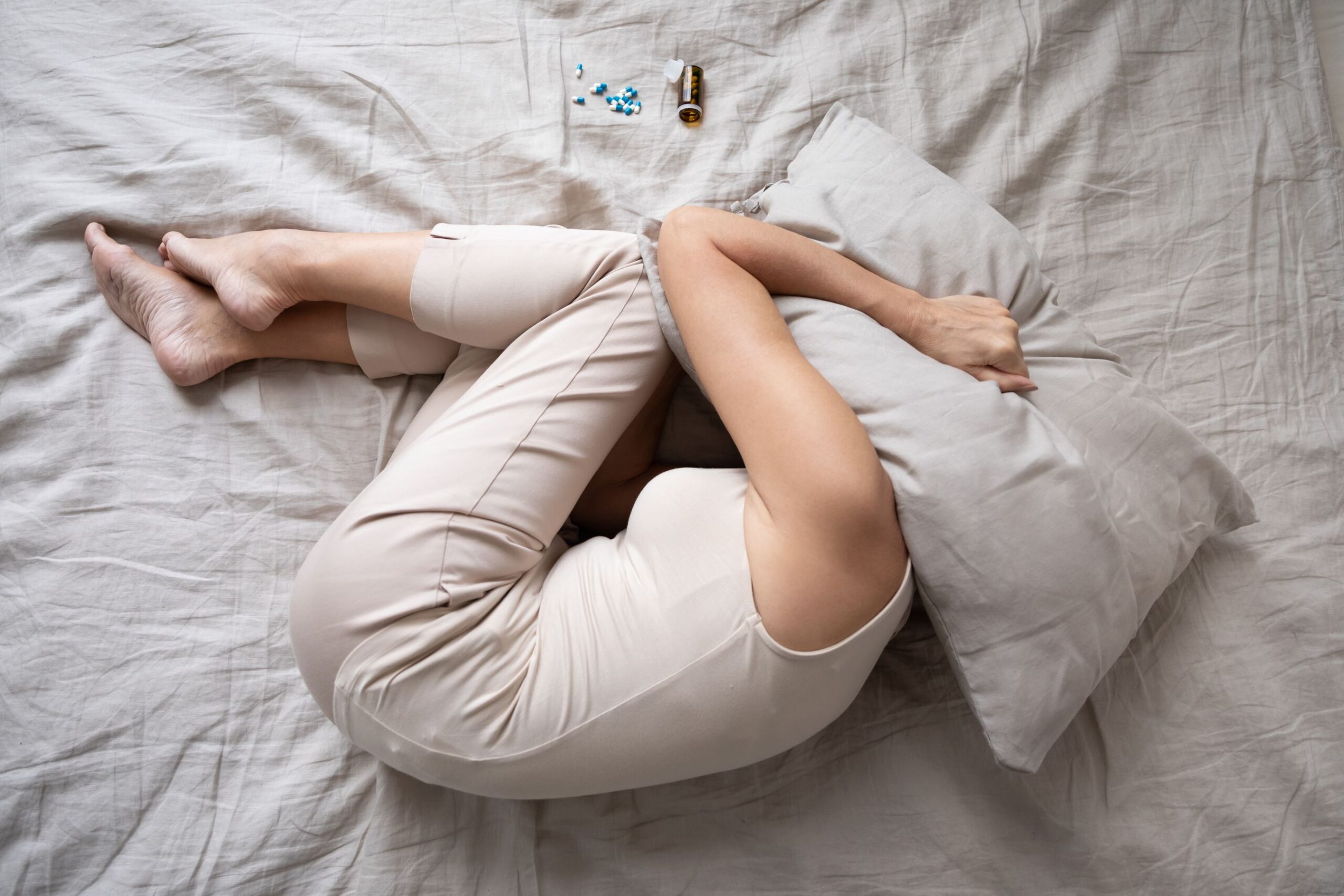
(Shutterstock)
Earlier this summer, for no reason known to me, my occasional insomnia ratcheted up. Terrified of getting addicted to sleeping pills or pot or low-dose Xanax or melatonin or even Benadryl, I began to rotate them, never using the same sleep aid twice in a row…. Soon I could only sleep without a magic substance on nights when I did not have to set an alarm and wake with bright eyes and why a bushy tail should make one productive, I have no idea, but you get the point. Every night, I would vow to sleep “all by myself”—I sounded like a toddler being toilet-trained. Then I would sit on the sofa, watching some deliberately boring documentary or bloodless detective show, and the closer I drew to exhaustion, the more nervous I became.
Scared, I asked the nurse practitioner for advice at my annual checkup. She let the neuroticism slide and suggested Trazodone, saying it was less addictive than Xanax.
I filled the prescription but did not try the new pill that evening, because I wanted to make sure I took one under ideal circumstances, whatever those were, so it would work and I could have confidence and some of that lovely placebo effect going forward. (Insomniacs overthink.) Just knowing I had the prescription, though, sent me off to bed without an altered state. And I slept.
The same thing happened every night for the next week, sleep coming easier and easier.
I also felt less nervous around bedtime, less frantic. I had worked myself into a circular tizzy, and I think taking all that stuff to calm me into sleep had begun to physically, as well as psychologically, make me more anxious—a side effect I never anticipated.
The week sleep returned, I happened to hear Anna Lembke, author of Dopamine Nation, on the Hidden Brain podcast. What she said made stark sense. We are drowning in dopamine, the neurotransmitter our brain releases with even the smallest reward. Once humans walked miles to pick a single, delicious fig from a tree, Lembke says. Now we order a box on Amazon and eat them one after another. We have more access to larger quantities of more potent, delicious, or novel rewards. We have druggified our pleasures.
What does that sticky sea of melted chocolate, cannabis, and orgasm have to do with my insomnia? There is no purer pleasure than the relief and promise of sleep. But here is the rub: the brain craves equilibrium the way the body craves symmetry. “Every time the balance tips toward pleasure,” Lembke explains, “powerful self-regulating mechanisms kick into action to bring it level again.” The more pleasure we give ourselves, the harder the body has to work to counter that dopamine, introduce a little pain. We begin to need more and more of the pleasure just to feel normal.
I order Lembke’s book, Dopamine Nation, from the library. While waiting for it to arrive, I learn in an unrelated email that she is speaking on a panel titled “The Pleasure Paradox.” “Despite better healthcare, education, and more disposable income, cases of depression have increased more than 50 percent since 1997,” reads the description. “Does more comfort in fact lead to more pain in the long run?”
A terrifying question. Lembke echoes it in her book: “Why, in a time of unprecedented wealth, freedom, technological progress, and medical advancement, do we appear to be unhappier and in more pain than ever? The reason we’re all so miserable may be because we’re working so hard to avoid being miserable.” Surrounded by pleasure, we rush toward anything that might fix us—and the possibilities are everywhere.
“We’ve transformed the world from a place of scarcity to a place of overwhelming abundance,” Lembke continues. “Drugs, food, news, gambling, shopping, gaming, texting, sexting, Facebooking, Instagramming, YouTubing, tweeting…the increased numbers, variety, and potency of highly rewarding stimuli today is staggering.” Digital dopamine 24/7. And our balancing act, technical term “neuroadaptation,” means that “with repetition, our gremlins get bigger, faster, and more numerous, and we need more of our drug of choice to get the same effect.” Soon we are not even chasing pleasure, just trying to get back to baseline normalcy.
“The net effect is that we now need more reward to feel pleasure, and less injury to feel pain,” Lambke concludes. “This recalibration is occurring not just at the level of the individual but also at the level of nations.” During world wars and cold wars, we knew how to toughen up, band together, cope with rations, plant gardens, make sacrifices. During a pandemic, we spat at each other because we disagreed about wearing little pieces of cloth on our faces.
Our hunger for pleasure, ease, comfort, and relief is catnip for manufacturers, who ply us with something new the minute they sense withdrawal. Worried that you drink too much? Here are nonalcoholic spirits and beers that look and taste just like the stuff that messed you up. Miserably addicted to Twitter-I-mean-X? Try Threads. Spending too much on prostitutes or porn? Buy a sex robot. Trying to stay out of casinos? Why not fantasy baseball instead? Dieting? Binge on low-fat gluten-free carbs packaged like treats. Sleeping pills scare you? Have some edible, legalized pot.
The way out of this spiral, says Lembke—who fought her own addiction to romance novels and soft porn—is not finding a similar substitute (or rotating among a variety-pack of sleep aids) but abstaining. “If we wait long enough, our brains (usually) readapt to the absence of the drug and we reestablish our baseline homeostasis: a level balance. Once our balance is level, we are again able to take pleasure in everyday simple rewards.”
Like sleep.
Read more by Jeannette Cooperman here.
